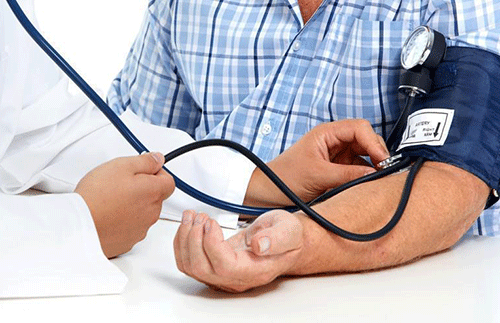An estimated 1.28 billion adults, aged 30-79 years, worldwide have hypertension, most of whom live in low- and middle-income countries, according to the World Health Organisation (WHO).
However, an estimated 46% of adults with hypertension are unaware they have the condition, which is a major cause of premature death worldwide.
Hypertension, commonly known as high blood pressure, is when the pressure in your blood vessels is too high (140/90 mmHg or higher). It is common, but it can be serious when not treated. Blood pressure is written as two numbers.
The first (systolic) one represents the pressure in blood vessels when the heart contracts or beats.
The second (diastolic) one represents the pressure in the vessels when the heart rests between beats.
Obesity, lack of exercise, stress, excessive alcohol consumption and disproportionate salt intake might place one at an increased risk of developing hypertension, says Dr Nelson Makemba, a general practitioner and managing director of Nesha Medical Practice in Windhoek.
Pregnant women are also more prone to hypertension because their blood volume increases during pregnancy.
With hypertension day that is commemorated annually on 17 May, Makemba said people living with high blood pressure often have no symptoms – even when the blood pressure is extremely high, except a few that might present with headaches, shortness of breath and, at times, nose bleeding.
Other symptoms include chest pain, dizziness, nausea, vomiting, blurred vision or other vision changes, anxiety, confusion, buzzing in the ears, nosebleeds and abnormal heart rhythm.
However, the symptoms are not specific, and they often signify life-threatening or severe hypertension.
Checking the blood pressure is the best way to know if one has high blood pressure.
If hypertension is not treated, it can cause other health conditions like kidney disease, heart disease and stroke.
Makemba highlighted there is a vast number of different medications that one can use to treat hypertension, often done at the clinician’s discretion.
“Leading a healthy lifestyle, such as eating a healthy balanced diet, exercising, not smoking and cutting down on alcohol consumption, can go a long way toward keeping hypertension at bay,” he noted.
He said several factors might increase one’s risk of developing hypertension, such as age (55 years or older), race (commonly seen in people of African descent) and a positive family history of hypertension.
“If left untreated, particularly for a longer period, complications such as heart attack, stroke, heart failure, kidney problems and dementia – just to mention a few – can set in,” he warned.
The doctor encouraged Namibians to regularly have their blood pressure checked by their doctors or healthcare providers to help safeguard against late diagnoses, which are often associated with many complications.
Lifestyle changes like eating a healthier diet, quitting tobacco and being more physically active can help lower blood pressure.
However, some people may still need to go on medication.
The WHO states that among other complications, hypertension can cause serious damage to the heart.
“Excessive pressure can harden arteries, decreasing the flow of blood and oxygen to the heart. This elevated pressure and reduced blood flow can cause chest pain, also called angina, or heart attack, which occurs when the blood supply to the heart is blocked and heart muscle cells die from lack of oxygen.
“The longer the blood flow is blocked, the greater the damage to the heart. Heart failure, which occurs when the heart cannot pump enough blood and oxygen to other vital body organs, as well as irregular heartbeat, can lead to a sudden death.”
Hypertension can also burst or block arteries that supply blood and oxygen to the brain, causing a stroke.
In addition, hypertension can cause kidney damage, leading to kidney failure. -psiririka@nepc.com.na


